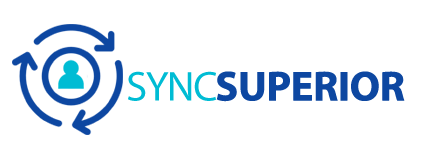
Have you ever wondered why some candidates are simply not selected in an interview, sometimes despite having equal technical knowledge? The answer is effective communication. It’s the magic wand that can even enhance your technical abilities. Today, I’ll share 10 practical and easy ways to make your next interview a strength.
1. Learn the Art of Listening, Not Just Hearing
Did you know? 80% of communication happens through listening, not speaking. When the interviewer is asking a question, instead of just listening, listen actively. This means you understand what they’re saying completely and understand the intention behind their words. In a hurry to answer, many people give incomplete answers. Take a pause for a second after the interviewer finishes speaking, then resume answering. This will give you time to think and make your answer more effective.
2. Make Your Body Language Your Ally
Your body language reflects your confidence. Sit up straight, with your shoulders back and your chest held high. Look the interviewer in the eye and make eye contact. This shows confidence. However, be sure not to stare; just maintain normal eye contact. Sitting with folded arms or fidgeting indicates nervousness. A calm and composed posture inspires confidence.
3. Make ‘Tell Me About Yourself’ Your Identity
This question is the first and most important question of the interview. Instead of presenting it in a dazed tone, tell it like a story. Wrap it up in a powerful 60-90-second elevator pitch. This should include your introduction, your educational background, your relevant skills, and why you’re interested in this job. Remember, this isn’t your bio, but rather a professional introduction.
4. The STAR Technique is the Soul of Your Answers
Candidates often struggle to give a direct answer to a question. The STAR Technique is a powerful formula for this.
- S (Situation): First, describe the situation or project.
- T (Task): Then, describe your responsibilities.
- A (Action): Most importantly, what steps did you take to complete the task.
- R (Result): Finally, what were the results of your actions? If possible, provide numbers, such as “This increased our team’s productivity by 15%.”
5. Choose Your Words Wisely
Filler words like “umm,” “ah,” “like,” “that is,” undermine your confidence. When you’re thinking, it’s better to remain silent rather than using these words. Furthermore, use positive words instead of negative ones. For example, instead of “I haven’t done this,” say, “I haven’t done this yet, but I’m very eager to learn it.”
6. Asking Questions to the Interviewer is Crucial
The biggest mistake in the interview is saying “no” when asked, “Do you have any questions?” This suggests you’re not interested in the job. Always have 2-3 smart questions prepared. For example, “How will you measure success in this role?” or “What is the team’s biggest challenge?” Such questions demonstrate your seriousness.
7. Control Your Tone and Pace
Speaking in a monotonous tone can be boring. Use voice modulation to emphasize important points. Speaking too fast can indicate nervousness, and speaking too slowly can indicate a lack of enthusiasm. Speak at a moderate and clear pace.
8. Avoid Technical Jargon, Speak in Simple Language
It’s a mistake to think that the more complex words you use, the better the impression. The real skill lies in explaining your work in simple language. If there are non-technical people on the interview panel, it’s important that they can easily understand what you’re saying.
9. Prepare for Tough Questions in Advance
Don’t be afraid of questions like “What is your biggest weakness?” Be honest, but mention a weakness you’re working on. For example, “I used to get caught up in multiple projects at once, but now I use to-do lists and prioritization tools, which has increased my efficiency.” This will demonstrate your self-awareness.
10. Practice, Practice, and Only Practice
This is the most important point. Practice speaking in front of a mirror. Record your voice and listen to it. Take mock interviews in front of friends or family. Look up lists of common interview questions online and prepare answers. The more you practice, the less nervous you will be and the more you will build confidence.
Final Words
Friends, an interview is not a punishment, but an opportunity to showcase yourself. These small tips will give your preparation a new direction. Remember, it’s not necessary to be perfect, but it is essential to be authentic and willing to learn. Wishing you all success in your careers!
